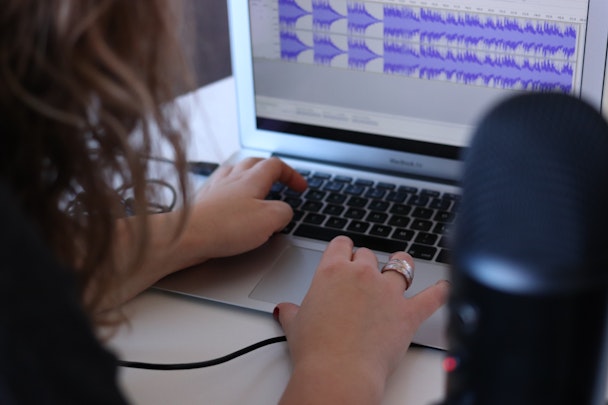Post-pandemic, it’s time for a better work-life balance
Sometimes, the key to being more productive is slowing down. Propeller Group’s Kate Chaundy divulges the motivation behind her podcast Work, Actually and trialing a four-and-a-half-day work week.

Time outside of work for creative pursuits may increase productivity / CoWomen via Unsplash
I launched the Work, Actually podcast in March 2020, a project that had been in my mind for a few years after continually noticing the gap between job descriptions and reality.
My career in PR has taken many twists and turns. Starting out in the music industry, it has since crossed into lifestyle and healthcare, and now sits in media and advertising. I’ve been fortunate enough to meet a never-ending stream of interesting, accomplished and inspiring people during this time – people with such intriguing stories to tell that would benefit those wanting to learn more about that line of work (far more than reading a glossy day-in-the-life feature that rarely details the truth).
Advertisement
Purpose in podcasting
When lockdown hit, I took the opportunity to start the podcast, setting up interviews with people including Ida O’Brien, the intimacy coordinator on shows such as Normal People, Sex Education and I May Destroy you; Premier League broadcaster Lynsey Hooper; and now West End lead Emma Hatton, to name a few.
Picking the brains of people at the top of their game is a privilege: to hear about their ambition, drive, the obstacles overcome and what they believe to be attributes in succeeding in that line of work. I also went closer to home – friends who I knew had overcome adversity and come out the other side, such as my close colleague Ben Robinson, who faced lockdown as a newly-recovered alcoholic.
I was lucky to gain listeners quickly as we remained locked down. People started to click on it and engage. I was contacted by teachers who thanked me for providing a great resource for students struggling to know or understand what interested them as a career.
PRs started reaching out saying how they’d love clients to feature. Having that focus outside of day-to-day work, without much else going on in the world, really helped me through some of those tougher times.
Advertisement
Back to reality
Inevitably (and thankfully), real life started to come back. As an agency, Propeller fared well, and we managed to come out the other end relatively unscathed with clients thankful for our support and dedication. We moved into a new Soho office, and it was great to go back in, see colleagues and feel normal again.
This also meant the podcast went on the back burner. Yes, I managed to keep regularly interviewing, but my focus changed and priorities had shifted. I fell behind on social posting or getting back to PRs. Posting a new episode every Monday without fail started to slide and this had a direct impact on how easily the show could be discovered. As I became busier, I became more complacent. I felt an ongoing sense of frustration and guilt. I wanted to do more, I just didn’t have the bandwidth. More than a few times, I considered giving it up.
Going back to work, everyone’s expectations had changed. The value of commuting miles every day to the office was gone. Meeting up in person for routine chats no longer seemed worth it. Everyone started to realize that the balance had been off. We had been tired for so long – we didn’t know what it was like to not be. And, understandably, most people felt adamant about not going back into that kind of environment.
At Propeller, we’ve had countless discussions about finding the right balance to adjust to this. We wanted to demonstrate thanks in a way that would show real appreciation over simply another ‘perk.’ The result: trialing a four-and-a-half-day week, an exciting initiative that started almost three months ago.
Suggested newsletters for you
The future of work is changing, finally
Eight weeks in, and there has been no decrease in output or performance. The feeling? Immense positivity. For me, it gave me structured time to go back to the podcast. These precious few hours were perfect for editing, setting up interviews and getting back to embracing something I’m passionate about outside of work.
In the last eight weeks, the podcast has grown by another 2500 listens. I’ve interviewed one of the UK’s most accomplished horse racing trainers, an experienced film and TV agent, an ITV newsreader and even my own dad who headed up the obituaries department of the BBC for 20 years (certainly worth a listen if you’re interested in how a major broadcaster deals with the death of a royal).
Many employers are shifting their cultural practices, and rightly so. I’m proud to work for an agency that took the risk and trusted its staff, affording us time to pour into other passions and interests. The reality of work culture is changing for a better, more balanced future.
Kate Chaundy is client services director at Propeller Group, and host of the Work, Actually podcast.
Content by The Drum Network member:

Propeller Group
Propeller delivers a joined-up approach to PR, Content and Business Development.
Our clients all have stories to tell.
Our role is to shape and put...

